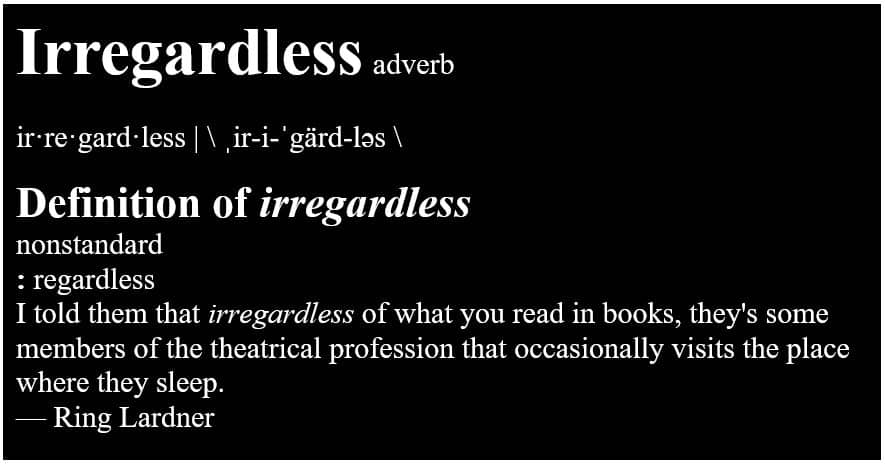Amid our pressing global problems, my Twitter feed exploded yesterday on a topic of supreme importance. The question, worthy of cutesy snark and apocalyptic haranguing, was:
Is “irregardless” a word?
Merriam-Webster has long said “yes,” reasoning that any word regularly spoken is – wait for it – actually a word.
And for just as long, word nerds have called it an abomination. They reason that “regardless” is fine, thank you.
Merriam-Webster appears to have sparked the lexiconic spat with this jab in a recent blog post:
“ … the disirregardlessers make themselves known by writing angry letters to us for defining it, and by taking to social media to let us know that ‘IRREGARDLESS IS NOT A REAL WORD.’”
In response, David Burge told his more than 200,000 Twitter followers, “It was a good run, English language.”
Merriam-Webster’s rejoinder: “Yes, English is literally dead.” (That’s double snark for word nerds, who also object that adding “literally” doesn’t make the dead any deader.)
A pile-on ensued. The word “elitist” was thrown about.
Golly, Congress is for tea-cup weenies next to these nerdy gladiators.
Regardless of what you think . . .
‘Irregardless is a word’: Irregardless was first included in Merriam-Webster’s Unabridged edition in 1934. From NPR.
More on writing and punctuation
You, too, can be an apostrophe warrior








